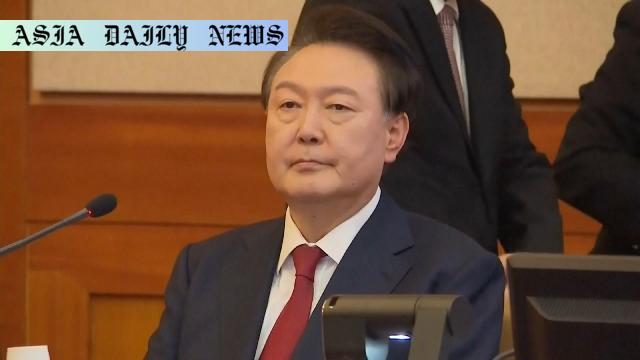President Yoon Suk-yeol attends court amid allegations of insurrection related to a martial law declaration.

Introduction to the Impeachment Trial of President Yoon
South Korean President Yoon Suk-yeol has become the center of national and international attention as he attends his impeachment trial. This trial, which examines his declaration of emergency martial law in December, marks a historic moment as Yoon is the first South Korean president to personally appear at such proceedings. This case has pivotal implications for South Korea’s democratic principles and institutional integrity.
Allegations Against President Yoon
The impeachment trial stems from allegations regarding Yoon’s declaration of emergency martial law, an action perceived as a reaction to alleged electoral fraud during December’s election period. He has also faced accusations of attempting to orchestrate an insurrection during this tense political episode. These allegations led to his detention on Sunday and his transport to the Constitutional Court for the trial proceedings.
President Yoon’s Defense
During his court appearance, President Yoon defended his actions by emphasizing his commitment to liberal democracy. He argued that the declaration of martial law was not an attempt to propagate conspiracy theories but rather an effort to verify the credibility of the election process. In addressing a direct question from a justice regarding whether military action was ordered to remove National Assembly lawmakers, Yoon denied such claims, further emphasizing that he had followed constitutional boundaries in his decisions.
Arguments by the National Assembly
Counters to Yoon’s arguments came from representatives of the National Assembly, who had voted for his impeachment. They contended that the president’s claims of electoral fraud lacked a substantial basis and questioned the necessity and proportionality of declaring martial law. According to them, such actions raised significant concerns about abuses of power and erosion of democratic processes.
Hearing Atmosphere and Future Proceedings
The trial lasted approximately an hour and 40 minutes, during which both sides presented their initial arguments. President Yoon’s composed demeanor and assertions of innocence stood in contrast to the serious accusations levied against him. Hearings for the case are scheduled to occur twice a week, signaling a lengthy process to determine the validity of the allegations and the potential impact on South Korea’s political landscape.
The Broader Implications of the Trial
This case is not just about President Yoon but also serves as a critical test for South Korea’s legal and constitutional systems. The trial underscores vital issues of accountability and the balance of power, particularly the responsibilities of an elected president to uphold democratic principles even under contentious circumstances.
Conclusion
The impeachment trial of President Yoon Suk-yeol reflects both the challenges and the resilience of democratic systems. As hearings proceed, the Constitutional Court’s decision will likely have ramifications for South Korea’s governance and how future crises are managed. Observers from around the world are closely watching these developments as they unfold, with hopes that justice and constitutional values will prevail in determining the outcome of this historic trial.
Commentary
Reflecting on the Significance of Yoon’s Trial
The ongoing impeachment trial of South Korean President Yoon Suk-yeol is undoubtedly a defining moment in the nation’s modern political history. Beyond the immediate controversies surrounding martial law and allegations of electoral fraud, this case raises important questions about how democratic leaders navigate governance amid crises. South Korea, a nation celebrated for its development and democratic maturity, now finds itself grappling with one of its deepest legal challenges.
Balancing Leadership and Accountability
Every democratic leader inevitably faces calls to account for their decisions, particularly in contentious moments. President Yoon’s decision to declare martial law, while possibly well-intentioned in his own view, treads on a fine line of executive overreach. Did he believe such measures were the only way to uncover electoral irregularities, or was it a reaction born out of political desperation? These are questions that this court must answer.
Implications for Democracy
What happens in this case will reverberate far beyond South Korea. It will serve as a precedent for how far executive power can extend in times of uncertainty. For a democracy to thrive, its institutions must resist the allure of absolute authority, ensuring not just adherence to laws, but also trust among its citizens. Yoon’s trial is thus not merely about one individual but the trajectory of democratic governance in complex, modern societies.
As the trial progresses, it is crucial for all parties to uphold the principles of fairness, evidence, and constitutional fidelity. Regardless of its outcome, this moment should serve as a reminder of the importance of integrity in leadership and the need for robust democratic safeguards in every country.


